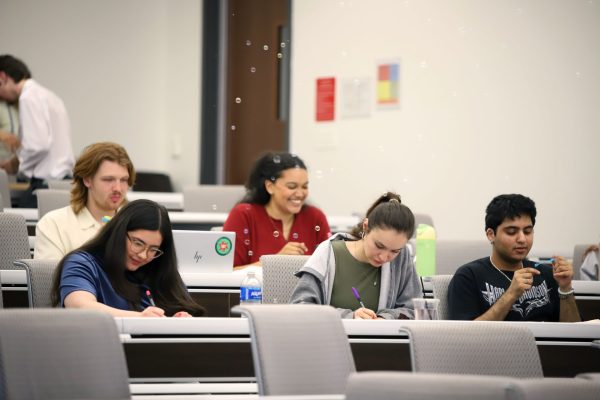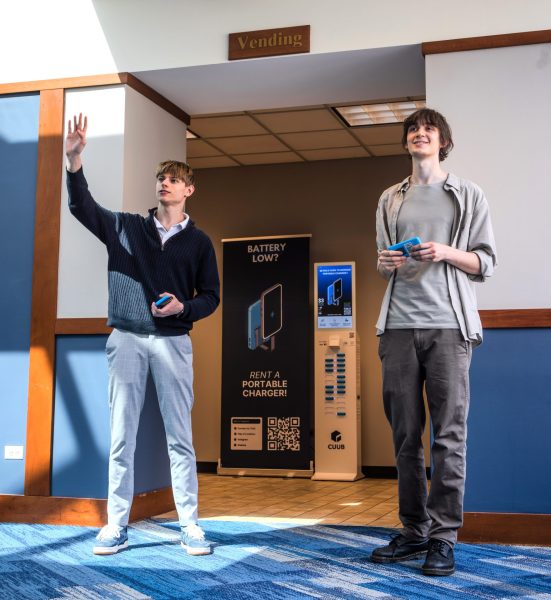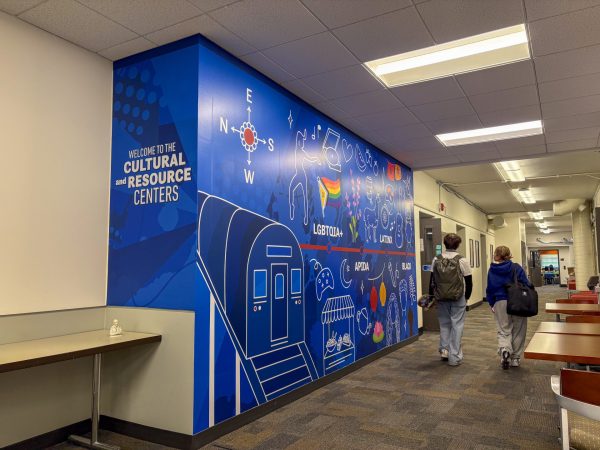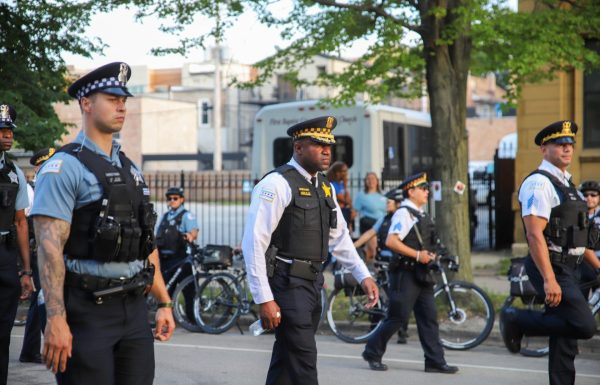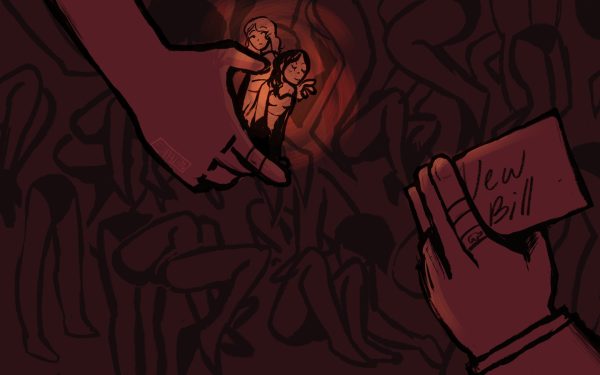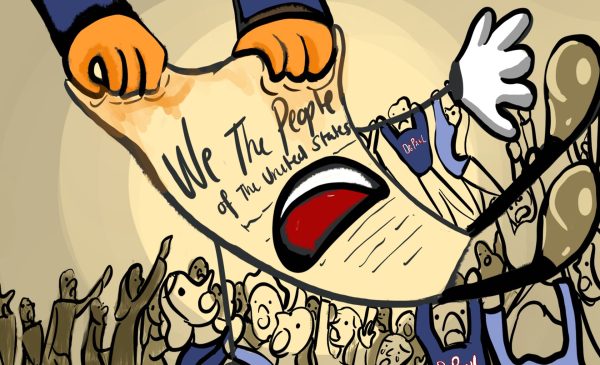DePaul receives $4.2 million grant to enact Project STRIDE
(Clockwise from left) DePaul faculty Autumn Cabell, Antonio Polo, Melissa Ockerman, (bottom row) Alexandra Novakovic and Rebecca Michel collaborated on the proposal.
DePaul University received a $4.2 million grant from the United States Department of Education to establish a stronger presence of diverse counselors in high-need Chicago public as Illinois faces an imbalance in their student-to-counselor ratios.
In an interdisciplinary collaboration, the university’s psychology department, along with the counseling sector of the College of Education, will use this grant to fund and execute project STRIDE (School-Based Trainee Recruitment and Retention through Innovation and Diversity Enrichment).
As current demographics prove that the ratio of students to counselors is significantly unbalanced, proper mental health resources for students is a pressing issue in Illinois.
Professor of counseling, Melissa Ockerman, describes this disparity.
“The American school counseling association recommends one school counselor to every 250 students, and unfortunately Illinois is one to every 600 students, so we are well beyond the number of students that a school counselor should be having,” Ockerman said.
Project STRIDE sets out to prepare graduate students at DePaul who dedicate themselves to working in high need Chicago public schools.
The funding received for project STRIDE will also be used for tuition support and training efforts to prepare diverse counselors for placement in schools.
Psychology professor Antonio Polo worked in collaboration with a team of faculty from DePauls’ counseling program to formulate an initiative combining psychology and school counseling.
Team members consist of Melissa Ockerman, Alexandra Novakovic, Rebecca Michel and Autumn Cabell to help bring project STRIDE to fruition.
DePaul’s continued relationship with CPS presented a clear opportunity to apply for this grant, according to Polo.
“As I looked around at DePaul and thought about possible partners for this initiative, it became clear that the department of counseling and special education was an ideal place to collaborate because of their long standing partnership with Chicago public schools,” Pollo said.
Not only is Project STRIDE setting out to place more counselors in Chicago public schools, but it puts a strong emphasis on training a group of diverse individuals to adhere to the specific backgrounds of Chicago’s students.
“We definitely need more school counselors in Illinois, and we certainly need school counselors to mirror the cultural and linguistic characteristics of the students they are serving,” Ockerman said.
The Chicago public school system ranks as the fourth largest school district in the United States. With such a robust student body, diversity is a strong presence in the school system, with 46% of students classified as Latine and 35% as African American.
Diversity being equally represented in faculty, especially those who specialize in mental health is a priority for education professionals and Project STRIDE.
“As much as we can get counselors, specifically diverse counselors in the school serving our students, the better it will be for everyone involved,” Ockerman said.
Polo puts an emphasis on the severe mental health impacts that stemmed from Covid-19, especially on Latine youth.
A recently conducted study by Polo found that Latine students reported higher depression and anxiety symptoms than any other group of students during the pandemic.
The severe uncertainty and loss dealt with by students throughout the pandemic resulted in a spike in social anxiety along with general anxiety stemming from worry, according to Polo.
“We still don’t know the full impact because we’re still dealing with it…this is another good reason to support the students,” Polo said.
As much as positivity can be seen through this initiative for students in Chicago public schools, DePaul graduate students are also receiving benefits from Project STRIDE, which Ockerman and professor of counseling Alexandra Novakovic characterized as a “win, win, win” scenario.
Novakovic explains how the funds received from the grant will go to giving graduate students compensation for their counseling internships which place them in CPS.
“Currently our students don’t get any compensation for their internships, so this is really a way to help our students get into schools, and become compensated for it,” Novakovic said. “It’s very hard to complete an internship if you’re not getting paid.”
Project STRIDE will also utilize Polo’s “Act and Adapt” intervention initiative which has been in action in CPSsince 2016.
Act and Adapt uses evidence-based intervention to help students through a 10 session video program where students can learn coping skills and find further resources for mental health assistance.
“Our goal has been to bring the services to the schools, instead of relying on parents, or services in the community to fill these needs, and we think schools are an ideal place to reach out to students and serve them, and they might not otherwise receive these services,” Polo said.
All the collaborators of Project STRIDE agree that a strong presence of diverse school counselors is crucial for the mental health benefits of CPS students.
“As much we can get counselors, specifically diverse counselors in the school serving our students, the better it will be for everyone involved,” Ockerman said.



